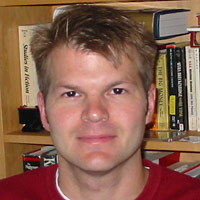{image1}After Kenny Perry continued his amazing summer in 2003 by winning the Greater Milwaukee Open, the tournament that debuted in 1968 with Dave Stockton winning at the Northshore Country Club officially ceased to be -- at least in a manner of speaking.
The GMO returns with a new sponsor (U.S. Bank) and a new name (The U.S. Bank Championship), falling prey to a trend that turned the L.A. Open into a commercial for Nissan and the Western Open into a marketing tableau for Cialis. But I suppose someone has to pay those outlandish PGA purses.
To whom will U.S. Bank be writing the check come this Sunday? That, as someone once wrote, is the question, as the USBC kicks off the most interesting golfing month southeastern Wisconsin has ever seen.
Four weeks after Milwaukee's tourney, the PGA Championship visits Haven, Wis. and the heralded links course at Whistling Straits. Fans who watched either of the last two PGA majors, including last weekend's British Open at Royal Troon, will get a look at yet another layout in the Scottish/Irish tradition, this time with Lake Michigan impersonating the oft-mentioned Clyde of Firth.
The contrast between this week's event and next month's could not be greater. While PGA players getting a first look at the Straits last month fretted openly about tight fairways and blind tee shots, Brown Deer Park Golf Course was training like a 175-pound middleweight trying to muscle up for a shot at the heavyweight crown.
To put it another way, par will not be a good score at Brown Deer. Not at all. When I play golf, I mentally tally bogeys as pars; when professionals play Brown Deer, a par feels more like a pulled hamstring than an accomplishment. The USBC will be all about birdies, not counting the parts about eagles, that is.
Last year, Perry won with a score of just 12-under par, a rather stingy total for Brown Deer. Since moving from Tuckaway in 1994, BDPGC had surrendered winning scores ranging from 15- to 24-under par. The higher scores last year were the result of No. 4 getting changed from a par-5 to a par-4, as well as an overall effort by PGA officials to toughen up some of the shorter courses on the Tour. And while 6,759 yards (2003's official distance) would make for an agonizing afternoon for your average duffer, it places Brown Deer as one of the shortest courses on Tour.
Low scores will be familiar, but most of the names won't be. While Milwaukee has never been a premier Tour destination, the recent schedule shift placing it the week after the British Open has made things even more difficult for tourney organizers. Perry and K.J. Choi are the two highest-rated players in the field, but former winners Loren Robers and Jeff Sluman will again be on hand, as will Paul Azinger and Steve Elkington. And the Wisconsin contingent -- J.P. Hayes, Skip Kendall (who led after two rounds in Scotland before finishing 13th), Jerry Kelly, David Roesch and Steve Stricker, among others -- will again aim for the storybook ending.
But if not birdie totals, the erstwhile GMO and forthcoming PGA may have something in common -- both tend to crown unlikely or little-known winners. While players like Shigeki Maruyama, Carlos Franco, Mike Springer and Richard Zokol have all won the GMO since 1992, the last three PGA champions have been Shaun Micheel, Rich Beem and David Toms -- all first time major winners. And though the British Open leader board was dotted with the game's very best, it was Tour rookie Todd Hamilton who had his name engraved on the Claret Jug on Sunday evening.
Unless Tiger, Phil or Ernie wins, however, officials are hoping Whistling Straits itself will be the star come mid-August. The Pete Dye-designed course features all the trappings of a Scottish links course, including fescue fairways, pot bunkers, massive bluffs, sand dunes and breathtaking views of Lake Michigan on every hole. There's even a flock of Scottish Blackface sheep that live on the course, though I don't know yet if they're camera shy or not.
After a practice round in June, ex-pro and current TV analyst Bobby Clampett predicted the winning score at Whistling Straits would be 10- to 12-OVER par. Returning champ Micheel called it the toughest course he had ever played, while 2002 winner Beem said it wasn't "real inviting."
The ability of professional golfers to whine about difficult courses is an annual rite, but it's normally reserved for those few days in June when the U.S. Open is contested on a hot, dry parcel of land at Pinehurst, Shinnecock Hills or Winged Foot. So it will be interesting to see what the fuss is really about come Aug. 12.
Undoubtedly, Whistling Straits is a bear. At a laughable 7,597 yards, it's the longest course in major championship history. If the wind kicks up and the sun comes out, Clampett's prediction may not be too far off. And I, for one, would not mind seeing it.
Sports shots columnist Tim Gutowski was born in a hospital in West Allis and his sporting heart never really left. He grew up in a tiny town 30 miles west of the city named Genesee and was in attendance at County Stadium the day the Brewers clinched the 1981 second-half AL East crown. I bet you can't say that.
Though Tim moved away from Wisconsin (to Iowa and eventually the suburbs of Chicago) as a 10-year-old, he eventually found his way back to Milwaukee. He remembers fondly the pre-Web days of listenting to static-filled Brewers games on AM 620 and crying after repeated Bears' victories over the Packers.





